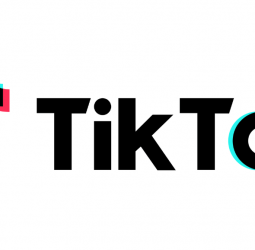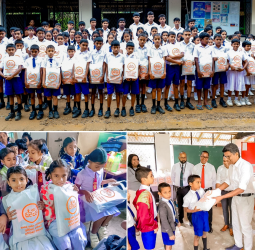The Public Relations and Communications Association Asia Pacific (PRCA APAC), together with Mark and Comm Ltd, acknowledges the Government’s step in developing a national media policy.
As professionals committed to ethical communication and the strengthening of public discourse, we welcome the initiative in principle. However, we believe the current draft, while broad in scope, requires significant refinement in both substance and structure to truly serve the public interest, and calls to extend consultation deadline to allow proper public participation.
The draft outlines objectives around media development, accountability, and regulation but stops short of explaining how these functions will be implemented with fairness, independence, and transparency. References to reforming existing laws or building new frameworks are vague, leaving unanswered how oversight will be safeguarded from political or institutional interference. Trust in regulation begins with trust in process.
The draft fails to meet international best practices established by other countries, which have successfully balanced media regulation with freedom of expression. Sri Lanka is a signatory to the International Covenant on Civil and Political Rights, the response states. This policy, as currently drafted, risks violating our international obligations to protect press freedom and access to information.
Throughout the draft, terms like “public interest,” “hate speech,” and “misinformation” appear frequently but without clear definitions or legal boundaries. In any democratic context, and especially in transitional societies, such ambiguity creates room for misuse. Policies that shape how media operates must be built on precision, not broad strokes.
We are also concerned by the draft’s treatment of digital media. While regulation is necessary in a modern information ecosystem, implied registration and compliance obligations for online publishers risk overreach, particularly affecting regional voices, small publishers, and independent creators. At a time when many rely on digital platforms for marginalised or under-reported stories, these measures could inadvertently narrow the public discourse.
Moreover, critical protections are absent. There is no mention of source confidentiality. No assurance for whistleblowers. No affirmation of the public’s right to access timely, verified information. These omissions weaken the very foundations on which credible journalism is built.
In addition to these gaps, the draft misses key opportunities to strengthen the media environment more holistically:
· Media Literacy: A sustainable media system must include a nationwide, long-term strategy to improve media literacy, from schools and universities to public institutions and civil society. In an age of misinformation, equipping citizens to navigate information critically is as essential as regulating those who produce it.
· Media Viability: There is no reference to supporting independent media economically. A vibrant, plural media environment cannot exist without public-interest funding mechanisms, innovation grants, and equitable access to government advertising for small and regional outlets.
· Inclusion and Representation: Diversity is briefly mentioned, but real equity in media across gender, ethnicity, disability, and geography require more than a line. Representation in newsrooms, leadership roles, and content must be actively supported.
· Crisis Communication: The policy fails to define the role of media during national emergencies, health crises, or disasters. Ethical crisis communication frameworks are essential—not only for the media, but also for the government’s own communication obligations.
· Public Service Media Reform: Decades of domestic reform proposals have called for transforming state-owned media into independent public service broadcasters. That vision is missing here. Without reform, these institutions will continue to operate as instruments of state communication, not public service.
· Right to Information (RTI): The RTI Act is a major legislative achievement for Sri Lanka. Yet it is entirely absent from this draft. While RTI is technically mentioned, it is not meaningfully included in the policy’s design or ambition. It reads like a name-drop, not a strategic pillar. Any media policy must align with, and strengthen, the RTI framework as part of a wider ecosystem of accountability and transparency.
· Journalist Safety: Nowhere does the draft address the safety, mental health, job security, or union rights of media workers. At a time when journalists particularly freelancers and regional reporters face increasing risk and precarity, this omission is both striking and disappointing.
· Grievance and Appeal Mechanisms: While regulation is discussed, no clear procedures are outlined for challenging decisions, appealing sanctions, or seeking redress. A fair system requires independent, accessible, and time-bound pathways for appeal and review.
Finally, and perhaps most importantly, the process must be inclusive not symbolically, but substantively. Stakeholders must go beyond a token consultation checklist. Journalists, editors, publishers, academics, civil society actors, digital creators, and community voices from all parts of the country must be part of the policy’s design, implementation, and periodic review.
This draft has the potential to evolve into a meaningful, future-facing media framework. But it will only succeed if it moves beyond control and toward empowerment. A truly national media policy must protect rights, build trust, and strengthen, not shrink the public’s access to diverse and credible information.
What’s also missing is continuity. Sri Lanka has had decades of discussions, reforms, and committee-driven recommendations on media transformation. From public service broadcasting to plural ownership and ethical self-regulation, many hard-won insights have been left out of this draft entirely. It’s a missed opportunity to build forward by learning from within.
This draft has the potential to become a strong, future-ready policy but only if it is revised with care, courage, and a commitment to freedom. As members of Sri Lanka’s communication and public affairs community, we call for a policy that empowers media, not polices it. One that protects freedom of expression, ensures accountability, and builds public trust in institutions through openness and not fear. We remain ready to support this process in a spirit of collaboration and responsibility.



 Natasha
Natasha




